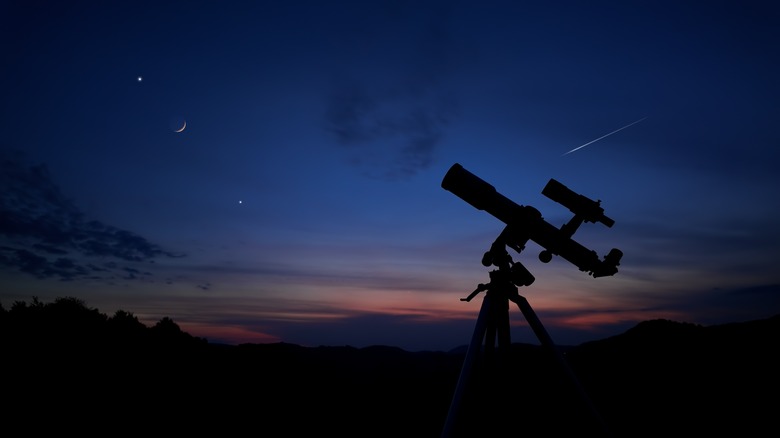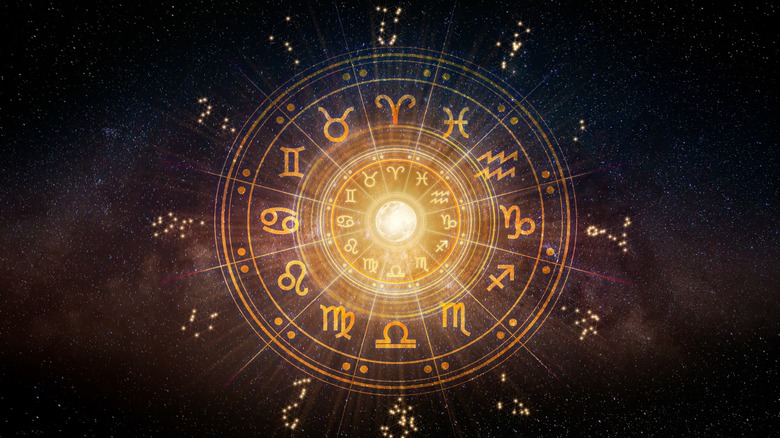Astronomy Vs. Astrology Explained: Two Disciplines A Universe Apart
Since humankind has existed, so too has their fascination with the stars. Long before ancient people used the stars and planets to help them track the best harvesting times, the night sky provided a cosmic canvas onto which humanity projected their own mythology.
Ancient Greeks are among the first to have recorded constellations — one of our earliest attempts at making sense of the cosmos. But our obsession with the stars began earlier than that, some 7,000 years ago when a group of nomadic hunter-gatherers in Africa built stone circles which tracked the Sun and stars. The monuments, at a location in the Nubian Desert named Nabta Playa, are thought to constitute the world's first astronomical site.
Millenia later, we are still fascinated by the cosmos, and while the site at Nabta Playa can be viewed as the very beginning of astronomy, in the modern age, our fascination has also manifested in a very different way — namely astrology. In the 21st century, both astronomy and astrology represent humanity's ongoing enchantment with the stars, but that is about the only thing they have in common.
What is astronomy?
Put simply, astronomy is the scientific study of everything outside of the earth's atmosphere. That essentially means the study of the cosmos itself — stars, planets, moons, galaxies, comets, and pretty everything else you'd associate with space and the universe, excluding Earth itself. Astronomy is a recognized branch of science that uses multiple disciplines to make sense of the universe. Mathematics, chemistry, physics, and all manner of sophisticated instruments come into play as scientists study the stars an attempt to discover answers to some of the most essential questions that face humanity.
Beyond the fact that astronomy deals with such fundamental and fascinating questions about the existence and structure of the universe, what makes it particularly significant is that it is considered the very first science. The nomads of Stone Age Africa were the first known group to track the stars with their stone circles at Nabta Playa. This was a form of observational astronomy, and it signaled the beginning of what became an integral part of agricultural society, allowing observers to track the stars and predict changes on Earth, such as when the seasons would change to help with harvesting. Tracking the stars also served as a way of navigating.
Today, there are multiple forms of astronomy, from observational to theoretical, planetary science to astrophysics. Cosmology and astrobiology are also forms of astronomy, all of which gets to the most important point to remember, especially in the context of a comparison with astrology: Astronomy is a scientific discipline, based on research, observation, and the scientific method.
What is astrology?
While astronomy is a branch of science, astrology has nothing to do with the scientific method and is an entirely different thing. In fact, the only thing astronomy and astrology have in common are the "astro" element of their name, which is from the Greek "astron," meaning "star." Otherwise, astrology is a non-science. It is a form of divination that uses the position of planets, stars, moons, and the sun to interpret and predict events on earth. The idea at the heart of this practice is that these astronomical bodies and their movements directly affect the lives of humans and events on our planet.
Generally, astrology is considered to have no basis in scientific fact. That said, there was a time when astrology was considered a branch of astronomy. In the Islamic world, scientists such as Abu Ma'shar al-Balkhi, al-Biruni, and Nasir al-Din al-Tusi weighed in on astrology. Astrology was also a big part of Ancient Egyptians' belief system, even as Egyptian astronomers demonstrated much more scientific approaches to understanding the cosmos. What's more, early civilizations didn't distinguish between astrology and astronomy, and even as recently as the time of Galileo, astronomers and astrologers were essentially the same thing. But as science provided a deeper and more comprehensive understanding of the universe, astrology began to separate from its scientific counterpart.
As such, while astrology and astronomy share a root word and come from the same tradition, today they have very little in common. While astronomy is based on verifiable research and evidence, there are no studies that support the idea that the constellations or planets affect us in any personal sense. You may believe that Mercury being in retrograde will affect your daily life, but as far as science is concerned, that just isn't the case.


